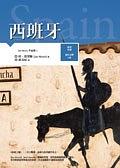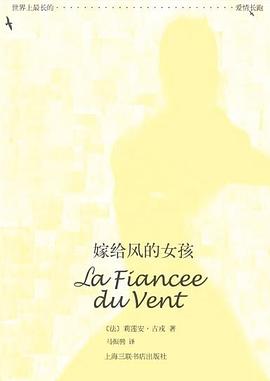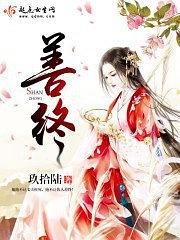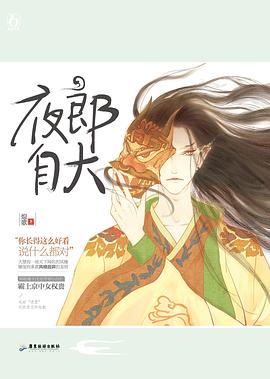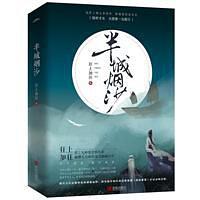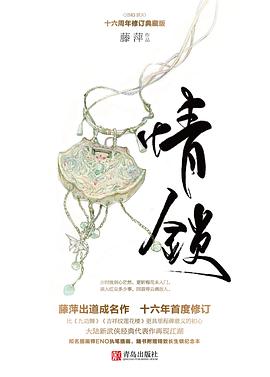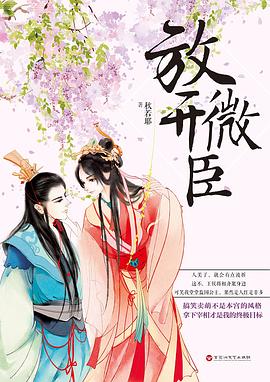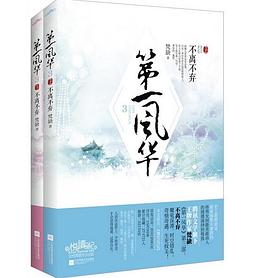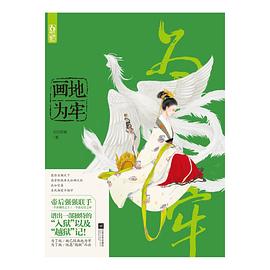

具体描述
聞名世界的大學寫作教授教你怎樣從中文入手學好英文的寫、說與思考
作者简介
Rudolf Flesch (8 May 1911 – 5 October 1986)
was an author, readability expert, and writing consultant who was an early and vigorous proponent of plain English in the United States. He created the Flesch Reading Ease test and was co-creator of the Flesch-Kincaid Readability Test. He was raised in Austria and finished university there, studying law. He then moved to the United States and entered a graduate program at Columbia University, where he earned a Ph.D in English.
Not long after finishing his degree, he wrote what became his most famous book, Why Johnny Can't Read, in 1955. The book was a focused critique of the then-trendy movement to teach reading by sight, often called the "look-say" method. The flaw of this approach, according to Flesch, was that it required learners to memorize words by sight. When confronted with an unknown word, the learner was stumped. Flesch advocated a return to phonics, the teaching of reading by teaching learners to sound out words.
Flesch flourished as a writing teacher, plain-English consultant, and author. He wrote many books on the subject of clear, effective communication: How to Test Readability (1951), How to Write Better (1951), The Art of Plain Talk (1946), The Art of Readable Writing (1962), The ABC of Style: A Guide to Plain English (1964), and Rudolf Flesch on Business Communications: How to Say What You Mean in Plain English (1972).
Flesch produced three other books of note:
In The Art of Clear Thinking (1951), Flesch consolidates research data and then-recent findings from the fields of psychology and education, and suggests how his readers can apply that information in their daily life. As he writes in his introduction, "It would be impudent to tell intelligent, grown up people how to think. All I have tried to do here is to assemble certain known facts about the human mind and put them in plain English."
In Lite English (1983), Flesch advocated the use of many colloquial and informal words. The subtitle of the book reveals his bias: Popular Words That Are OK to Use No Matter What William Safire, John Simon, Edwin Newman, and the Other Purists Say!
And in 1979, Flesch published a book he had produced while working as a communication and writing consultant to the Federal Communications Commission: How to Write Plain English: A Book for Lawyers and Consumers. This book was and is a "how to" for writing rules and regulations that must be read and understood by the general public.
Flesch practiced what he preached. His writing is clear, vigorous, and plain; his style is direct and energizing. Those who read How to Write Plain English often comment that his writing motivates them to write more plainly. For example, here is Flesch on clearing up legalese:
"Well, it's been my experience that lawyers are apt to use Plain English right up to the point where the going gets tough. Then they'll say, This idea is too complex—it can't be put into Plain English no matter how hard you try. . . . On that theory, you would draft a legal document, and just when the poor layman needed special help in understanding it, you would leave him in the lurch." How to Write Plain English at 3.
From Wikipedia, the free encyclopedia
目录信息
读后感
评分
评分
评分
评分
用户评价
我最近在读这本关于现代音乐理论的入门读物,它完全颠覆了我对传统乐理枯燥乏味的刻板印象。作者似乎深谙如何将复杂抽象的概念以最直观的方式呈现给读者。这本书的结构设计非常巧妙,它不是按照传统的音阶、和弦进行来编排,而是从听觉体验出发,先带你感受不同音乐风格(比如爵士的即兴、电子乐的律动)背后的结构逻辑,然后再反推理论。书中大量使用了图表和可视化工具,那些原本晦涩难懂的乐理符号,通过作者精妙的图形设计,变得一目了然。例如,书中对“不和谐音程”的解析,不再仅仅停留在物理频率的描述上,而是将其置于情感表达的语境中,解释了为什么某些声音组合能够产生强烈的张力,这极大地提高了我的欣赏水平。此外,作者还很贴心地加入了大量的音频链接和二维码,使得理论与实践能够同步进行,你读到一个新的和声进行,立刻就能点开听证效果。对于想深入了解流行音乐或电影配乐底层逻辑的爱好者来说,这本书无疑是打开新世界大门的一把钥匙,它既有学院派的扎实,又不失大众传播的亲和力。
评分这本厚重的精装书,拿到手里就有一种沉甸甸的实在感,翻开扉页,首先映入眼帘的是那种略带泛黄的纸张质感,仿佛能闻到一股淡淡的油墨香,让人联想到老图书馆里那些尘封已久却充满智慧的书籍。内容上,它聚焦于深度的人类情感探索,特别是现代都市人如何在快节奏的生活中保持内心的平静与真实。作者用极其细腻的笔触,描绘了主人公在一次意外的旅行中,与自我、与自然、与陌生人之间发生的微妙而深刻的连接。我尤其欣赏其中对于“失落感”的剖析,它并非简单地归结于外部环境的压力,而是深入挖掘了身份认同的模糊性,那种游离于社会期望和个人渴望之间的挣扎,写得入木三分,让人读后久久不能释怀。书中穿插了一些哲学性的思考,但并非枯燥的说教,而是巧妙地融入到人物的日常对话和内心独白中,使得这些高深的议题变得触手可及。比如,对于“时间”流逝的感知,书中通过对不同季节光影变化的细致观察,构建了一种近乎冥想的状态,让读者在阅读的过程中,也仿佛被拉入了那个缓慢流淌的叙事时空。整体而言,这是一部需要静下心来细细品味的文学作品,它不追求情节的跌宕起伏,而是致力于描摹灵魂深处的微澜,是一次对生命意义的温柔叩问。
评分我刚读完这本关于古代文明兴衰的专著,说实话,开篇部分的史料梳理部分真是让人捏了一把汗,各种复杂的年代纪年和地名对应,如果没有扎实的历史基础,初读时确实有些吃力,感觉自己像在进行一场跨越千年的考古挖掘。但一旦熬过了前三章的背景铺垫,接下来的论述就如同拨云见日,豁然开朗。作者在分析某个特定时期社会结构变化时,采用了非常新颖的“自下而上”的视角,不同于传统史学总是聚焦于帝王将相,这本书着重探讨了普通手工业者、农民在重大历史转折点上的生存状态和微观选择,这使得那些宏大的历史叙事一下子变得有血有肉,真实可感。书中对考古发现的解读部分尤其精彩,作者巧妙地结合了人类学和社会学的理论框架,对出土文物背后的社会意义进行了大胆而又审慎的推测,很多观点令人耳目一新,甚至颠覆了我原有的认知。例如,关于那个失落城邦的祭祀体系的重建,作者仅仅依靠几片陶片的残缺纹饰,就构建了一个逻辑严密、令人信服的宗教图景。这本书的行文风格是那种典型的学术严谨中带着一丝浪漫主义色彩,学术的严谨保证了观点的可靠性,而浪漫的笔调则保证了阅读的愉悦性,绝对是历史爱好者书架上不可或缺的重磅藏品。
评分这是一部关于深海探险的纪实文学作品,阅读体验简直就像是坐上了一艘深潜器,一同潜入了地球上最神秘的黑暗区域。作者是一位经验丰富的海洋生物学家兼摄影师,他的文字充满了对未知世界的敬畏与好奇。书中最引人入胜的部分,是对那些极端环境生物的描绘,那些生活在火山口、没有阳光、承受着巨大水压的生命形态,它们的生存哲学简直比任何科幻小说都要震撼。作者的叙事节奏掌握得极好,时而是冷静客观的科学报告,详细记录了水温、压力、化学成分等数据;时而又转变为一种近乎诗意的散文,描绘了在舷窗外看到奇异发光生物时的震撼与孤独。书中收录的照片和手绘插图质量极高,那些深海鱼类五光十色的荧光,在哑光纸张上依然显得那么神秘而迷人。阅读过程中,我能清晰地感受到深海环境的压迫感和寂静,作者成功地将读者的感官带离了地面,进入了一个完全不同的生态系统。这本书不仅是科普读物,更是一部关于人类探索精神的颂歌,它提醒我们,地球上仍有广袤的领域等待我们去发现和理解,那种对纯粹自然力量的描摹,令人心潮澎湃。
评分这本书简直就是一本关于“创新思维与快速迭代”的实战手册,但我必须说,它的内容远超出了那些市面上泛滥的“成功学”鸡汤。作者的背景显然是科技前沿领域,所以书中充斥着大量最新的案例分析,从硅谷的初创公司到欧洲的传统制造业如何实现数字化转型,每一个案例都被拆解得极其透彻,犹如一台精密的仪器在进行解剖。我最欣赏的是它对“失败”的定义和处理方式。书中明确指出,真正的创新者不是不犯错,而是他们的失败成本极低、迭代速度极快。书中提出了一个“最小可行性假设”模型,这个模型在描述产品开发路径时,简直是点石成金,它强调的是快速进入市场进行真实用户反馈,而不是在内部进行漫长的闭门造车。文字风格是那种直截了当、充满动能感的,没有一句废话,读起来让人热血沸腾,恨不得立刻关上书本投入到实践中去。不过,对于完全没有接触过商业或技术背景的读者来说,某些章节中关于算法优化和市场竞争策略的描述,可能需要反复阅读才能完全领会其深层含义,但总体来说,它为任何想要在快速变化环境中保持竞争力的个人或团队,提供了清晰的行动指南和思维框架。
评分2008年2月28 在科學圖書館發現
评分2008年2月28 在科學圖書館發現
评分2008年2月28 在科學圖書館發現
评分2008年2月28 在科學圖書館發現
评分2008年2月28 在科學圖書館發現
相关图书
本站所有内容均为互联网搜索引擎提供的公开搜索信息,本站不存储任何数据与内容,任何内容与数据均与本站无关,如有需要请联系相关搜索引擎包括但不限于百度,google,bing,sogou 等
© 2026 book.wenda123.org All Rights Reserved. 图书目录大全 版权所有


